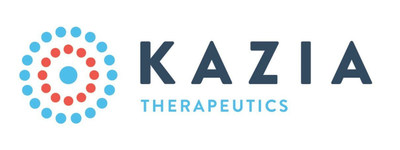SYDNEY, Feb. 20, 2025 /PRNewswire/ -- Kazia Therapeutics Limited (NASDAQ: KZIA) ("Kazia" or "the Company"), an oncology-focused drug development company, today announced a research grant awarded from The Michael J. Fox Foundation for Parkinson's Research (MJFF) to fund research between The Hebrew University of Jerusalem (Hebrew University) and Kazia to explore the therapeutic potential of paxalisib as a treatment for Parkinson's disease (PD).
The grant will fund collaborative preclinical studies at Professor Ronit Sharonʼs lab (Hebrew University) aimed at establishing an operational link between a specific pathway in the pathophysiology of PD and paxalisib. The research will assess the impact of paxalisib on mouse survival, motor and non-motor performances, as well as specific biochemical, pathological and molecular disease biomarkers that will be determined in brains of treated mice. Paxalisib is a unique, blood-brain barrier-penetrating inhibitor for class IA phosphatidylinositol 3-kinase (PI3K), and data generated from this research is expected to provide valuable insights into its potential activity for the treatment of PD.
"We are pleased to enter into this exciting collaboration with Dr. Ronit Sharon and The Hebrew University of Jerusalem, whose groundbreaking research has led to important discoveries related to neuronal degeneration in Parkinson's disease and related synucleinopathies," said Dr. John Friend, Kazia's CEO. "Overexpression of human α-synuclein A53T (α-SynA53T) in dopamine neurons is an underlying hallmark and contributor of Parkinson's disease. As a brain-penetrant PI3K inhibitor, we believe paxalisib may have the potential to address the underlying pathophysiology of PD by inhibiting AKT phosphorylation reaction of α-SynA53T, and the preclinical models we intend to explore will help answer this critical question."
The main goal of this research is to delve into the therapeutic potential of paxalisib, a drug that can enter the brain, and inhibit class IA phosphatidylinositol 3-kinase (PI3K). The preliminary findings from Professor Ronit's lab obtained in PD brains and supported by in-vivo data in a mouse model for PD, collectively emphasize the role of the canonical PI3K/AKT/mTORC pathway in the pathogenesis of PD. The preclinical research from this grant builds upon earlier data obtained in PD brains, α-SynA53T tg mouse brains and cell models for PD, which collectively emphasize a distinct role for α-Syn in hyper-activating the PI3K/AKT/mTORC2 pathway to facilitate α-Synʼs activity in neuronal lipid metabolism. More information can be found at https://www.michaeljfox.org/grant/exploring-paxalisib-novel-therapeutic-parkinsons-disease.
About Kazia Therapeutics Limited
Kazia Therapeutics Limited (NASDAQ: KZIA) is an oncology-focused drug development company, based in Sydney, Australia. Our lead program is paxalisib, an investigational brain penetrant inhibitor of the PI3K / Akt / mTOR pathway, which is being developed to treat multiple forms of brain cancer. Licensed from Genentech in late 2016, paxalisib is or has been the subject of ten clinical trials in this disease. A completed Phase 2/3 study in glioblastoma (GBM-Agile) was reported in 2024 and discussions are ongoing for designing and executing a pivotal registrational study in pursuit of a standard approval. Other clinical trials involving paxalisib are ongoing in brain metastases, diffuse midline gliomas, and primary CNS lymphoma, with several of these trials having reported encouraging interim data. Paxalisib was granted Orphan Drug Designation for glioblastoma by the FDA in February 2018, and Fast Track Designation (FTD) for glioblastoma by the FDA in August 2020. Paxalisib was also granted FTD in July 2023 for the treatment of solid tumour brain metastases harboring PI3K pathway mutations in combination with radiation therapy. In addition, paxalisib was granted Rare Pediatric Disease Designation and Orphan Drug Designation by the FDA for diffuse intrinsic pontine glioma in August 2020, and for atypical teratoid / rhabdoid tumours in June 2022 and July 2022, respectively. Kazia is also developing EVT801, a small-molecule inhibitor of VEGFR3, which was licensed from Evotec SE in April 2021. Preclinical data has shown EVT801 to be active against a broad range of tumour types and has provided evidence of synergy with immuno-oncology agents. A Phase I study has been completed and preliminary data was presented at 15th Biennial Ovarian Cancer Research Symposium in September 2024. For more information, please visit www.kaziatherapeutics.com or follow us on X @KaziaTx.
Forward-Looking Statements
This announcement may contain forward-looking statements, which can generally be identified as such by the use of words such as "may," "will," "estimate," "future," "forward," "anticipate," or other similar words. Any statement describing Kazia's future plans, strategies, intentions, expectations, objectives, goals or prospects, and other statements that are not historical facts, are also forward-looking statements, including, but not limited to, statements regarding: the timing for results and data related to Kazia's clinical and preclinical trials, Kazia's strategy and plans with respect to its programs, including paxalisib and EVT801, potential results of research between Hebrew University and Kazia regarding the therapeutic potential of paxalisib for the treatment of Parkinson's disease, the potential benefits of paxalisib as an investigational PI3K/mTOR inhibitor, timing for any regulatory submissions or discussions with regulatory agencies, and the potential market opportunity for paxalisib. Such statements are based on Kazia's current expectations and projections about future events and future trends affecting its business and are subject to certain risks and uncertainties that could cause actual results to differ materially from those anticipated in the forward-looking statements, including risks and uncertainties: associated with clinical and preclinical trials and product development, related to regulatory approvals, and related to the impact of global economic conditions. These and other risks and uncertainties are described more fully in Kazia's Annual Report, filed on form 20-F with the SEC, and in subsequent filings with the United States Securities and Exchange Commission. Kazia undertakes no obligation to publicly update any forward-looking statement, whether as a result of new information, future events, or otherwise, except as required under applicable law. You should not place undue reliance on these forward-looking statements, which apply only as of the date of this announcement.
This announcement was authorized for release by Dr. John Friend, CEO.
![]() View original content to download multimedia:https://www.prnewswire.com/news-releases/kazia-therapeutics-and-the-hebrew-university-of-jerusalem-receives-a-grant-from-the-michael-j-fox-foundation-to-evaluate-the-therapeutic-potential-of-paxalisib-as-a-treatment-for-parkinsons-disease-302381417.html
View original content to download multimedia:https://www.prnewswire.com/news-releases/kazia-therapeutics-and-the-hebrew-university-of-jerusalem-receives-a-grant-from-the-michael-j-fox-foundation-to-evaluate-the-therapeutic-potential-of-paxalisib-as-a-treatment-for-parkinsons-disease-302381417.html
SOURCE Kazia Therapeutics Limited






